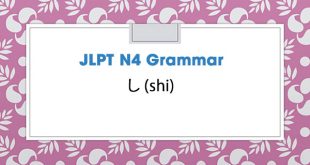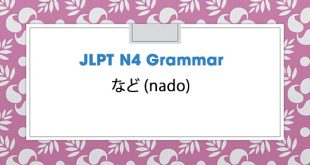なら (nara)
Meaning: if, if it is the case that, as for, in case
How to use the:
Verb-casual + (の)なら
Noun + (の)なら
いadj + (の)なら
なadj + (の)なら
Explain:
Used to convey a certain information about the topic that conversation partner raised earlier.
Example sentences:
1, 視界だけに頼るなら、ほかの感覚は弱まる。
shikai dake ni tayoru nara, hoka no kankaku wa yowamaru.
If you rely only on your eyes, your other senses weaken.
2, お金のことなら心配しなくていいですよ。何とかなりますから。
Okane no koto nara shinpai shinakute īdesu yo. Nantoka narimasukara.
Don’t worry about money. Because it ’s quite.
3, 自分ならそんなことができると思うか?
jibun nara sonna koto ga dekiru to omou ka.
Could you do that?
4, 佐藤さんなら、図書館にいますたよ。
Satō-san’nara, toshokan ni imasuta yo.
Sato ha? He was in the library now
5, むろん、この種のことなら、私はかなり経験をつんでいます。
muron, kono shu no koto nara, watashi wa kanari keiken o tsunde imasu.
Of course, I have a good deal of experience in matters of this kind.
6, 例おこならもう社長に伝え手あります。
Rei okonara mō shachō ni tsutae-te arimasu.
I reported it to the director
Attention:
Used to express information within the limits of a given topic and appreciate it within that limit. The back of 「N な ら」 is either 「N が 一番 だ」 or 「N が い い」
 Learn Japanese Free Learn Japanese Free
Learn Japanese Free Learn Japanese Free







